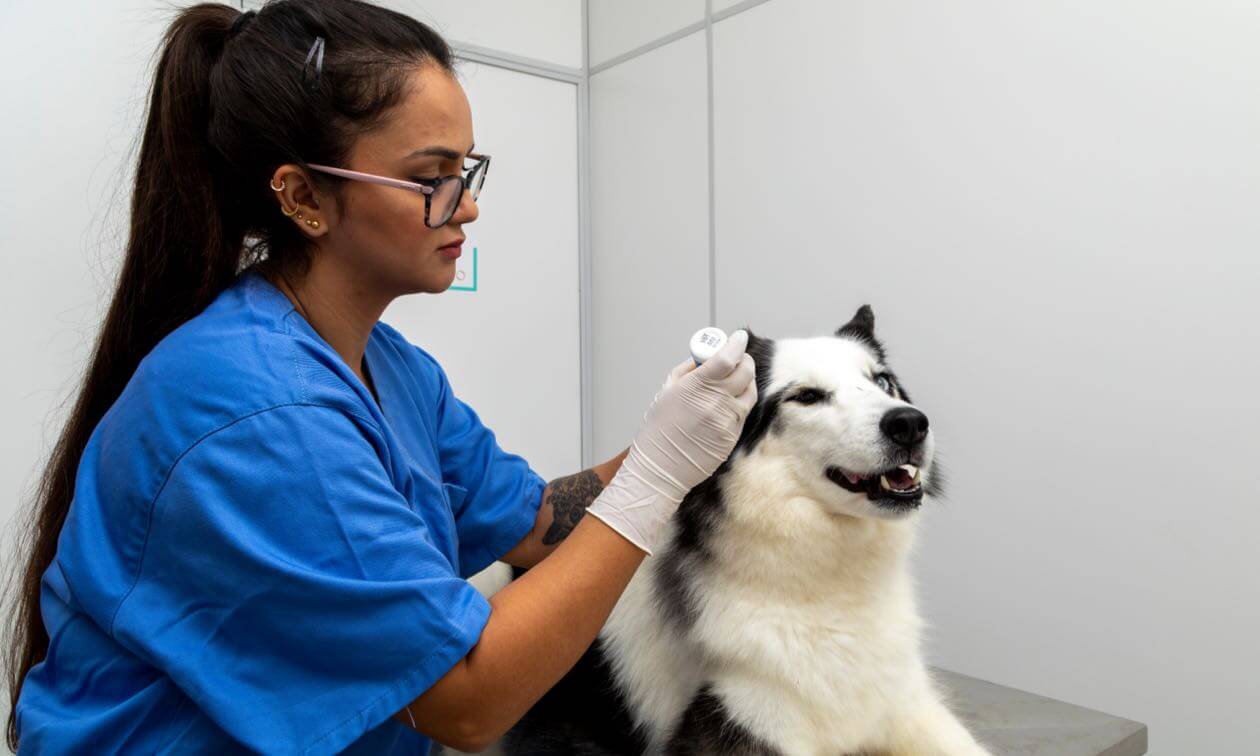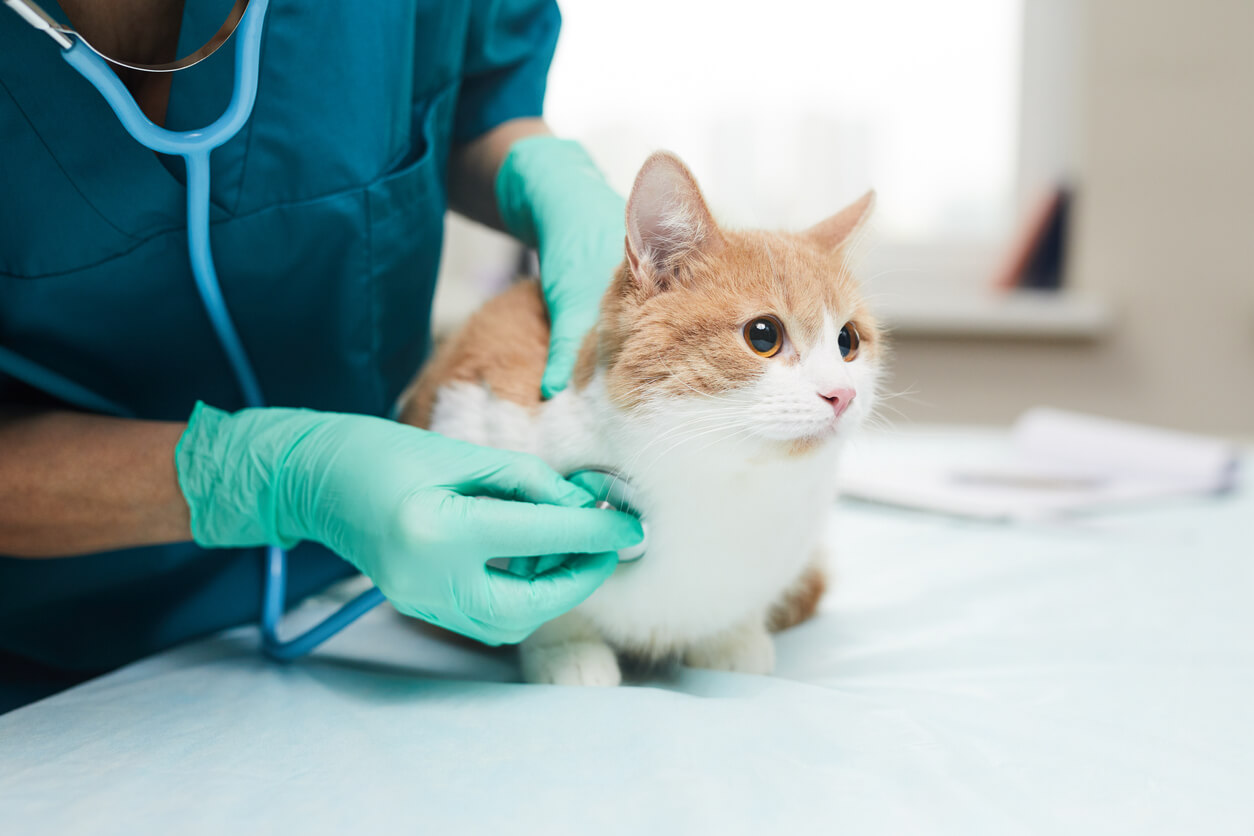Inoculation Standards From Your Relied On Veterinarian
Inoculation guidelines given by your trusted vet play an important duty in protecting your pet dog's health and health. Additionally, attending to usual misunderstandings bordering vaccines can additionally boost pet owners' self-confidence in these preventative steps.

Value of Vaccinations
Vaccinations play a critical function in protecting pets against a variety of avoidable conditions. By boosting the body immune system to acknowledge and fight particular pathogens, vaccines dramatically reduce the occurrence of transmittable illness that can influence an animal's health and longevity. Not just do vaccinations protect specific animals, but they additionally contribute to herd immunity, consequently minimizing the overall frequency of illness in the pet populace.
Timely vaccinations help to minimize the spread of illness such as rabies, parvovirus, and distemper, which can have severe repercussions for both people and pets. Moreover, vaccinations are usually a demand for boarding centers, grooming solutions, and canine parks, making them crucial for those who desire to socialize their pet dogs.

Core Injections for Pets
While the details inoculation needs of pet dogs can vary based on private elements, core vaccinations are generally recommended to shield against one of the most serious and usual diseases (Emergency Vet). Core vaccines are those regarded vital for all animals, despite their way of life or geographic area, as they protect versus potentially deadly and very infectious diseases
For canines, the core vaccines consist of those for canine distemper, parvovirus, adenovirus (hepatitis), and rabies. Canine distemper is a viral condition that impacts the respiratory, stomach, and nerve systems. Parvovirus is understood for causing serious gastrointestinal health problem, specifically in puppies. Adenovirus can lead to liver condition, while rabies is a zoonotic disease that presents a risk to both human beings and pet dogs.
In felines, core injections include feline panleukopenia, feline calicivirus, feline herpesvirus (rhinotracheitis), and rabies. Feline panleukopenia is an extremely transmittable viral condition that influences the immune system and intestines. Calicivirus and herpesvirus are major contributors to upper respiratory infections in cats, while rabies stays a critical concern for public health.
Consult with your veterinarian to ensure your pets receive their core vaccinations on time.
Non-Core Vaccines Explained
Non-core vaccines are tailored to resolve specific threats connected with a pet dog's way of life, direct exposure, and atmosphere to certain diseases. Unlike core vaccinations, which are widely suggested for all pets, non-core vaccinations are taken into consideration based upon private situations. These vaccines are specifically crucial for animals that might come across distinct pathogens as a result of their geographical location, traveling routines, or activities.
Instances of non-core injections consist of those for Bordetella bronchiseptica, which is linked to kennel cough, and Lyme illness, brought on by ticks. Pets that regularly communicate with various other animals, such as those in boarding centers, pet dog parks, or grooming atmospheres, may profit from Bordetella vaccination. Likewise, if you live in a location where Lyme disease is widespread, vaccinating versus this disease can be a sensible choice for outdoor-loving pets.
Other non-core vaccinations may consist of those for leptospirosis, canine flu, and feline leukemia, depending upon the specific risk variables existing. It is necessary to have a thorough discussion with your vet regarding your pet dog's way of life and the possible demand for these vaccines, making certain a tailored inoculation strategy that best secures your hairy buddy.
Inoculation Schedule Introduction

As animals grow, get more it is necessary to stick to the advised booster vaccinations. Pet Vaccinations. For adult animals, core injections are typically provided each to three years, relying on the certain vaccination and local policies. Non-core vaccinations may be recommended based upon way of living check my source factors and regional illness frequency, demanding a tailored method
Routine veterinary examinations are critical for upgrading inoculation timetables. Your vet can give guidance on the most appropriate immunizations for your pet, factoring in age, health status, and environmental risks. By remaining aggressive and educated, pet dog proprietors can guarantee their furry companions receive reliable and prompt inoculations, consequently securing their health and wellness and wellness throughout their lives.
Common Myths Concerning Vaccinations
Misconceptions about pet inoculations can cause confusion and reluctance amongst pet dog proprietors relating to the immunization process. One widespread misconception is that injections are unnecessary for interior animals. While it's true that indoor pets deal with lower dangers, they are not completely immune to conditions, as virus can be introduced through numerous ways, including human clothing and various other pets.
Another misconception is that vaccinations can trigger the diseases they intend to avoid. In truth, a lot of vaccines consist of inactivated or undermined pathogens, which can not create illness in healthy and balanced animals. Some pet dog owners additionally believe that their pet dogs ought to not be immunized if they are already healthy and balanced; however, inoculations are a proactive step that aids avoid the start of disease.
In addition, several view pet owners are afraid that vaccines will lead to long-lasting wellness problems. The benefits of inoculation-- shielding pets from possibly serious diseases-- far surpass the risks.
Conclusion
In summary, adherence to inoculation guidelines is crucial for making certain the health and wellness and longevity of family pets. Dispelling usual myths bordering vaccinations better strengthens the relevance of notified decision-making in pet dog care.
Not just do vaccinations shield individual pets, but they likewise add to herd immunity, therefore decreasing the total prevalence of illness in the animal populace.
Mistaken beliefs about family pet vaccinations can lead to complication and reluctance amongst animal proprietors regarding the immunization procedure. While it's real that indoor animals encounter reduced risks, they are not totally immune to conditions, as pathogens can be introduced with numerous means, including human garments and other family pets.
Some pet owners additionally believe that their pet dogs ought to not be vaccinated if they are already healthy and balanced; nonetheless, inoculations are a proactive step that assists stop the start of illness.
The benefits of vaccination-- safeguarding family pets from possibly life-threatening diseases-- far outweigh the risks.
Comments on “Exactly How Emergency Vet Providers Can Provide Immediate Relief for Pet Health Dilemmas”